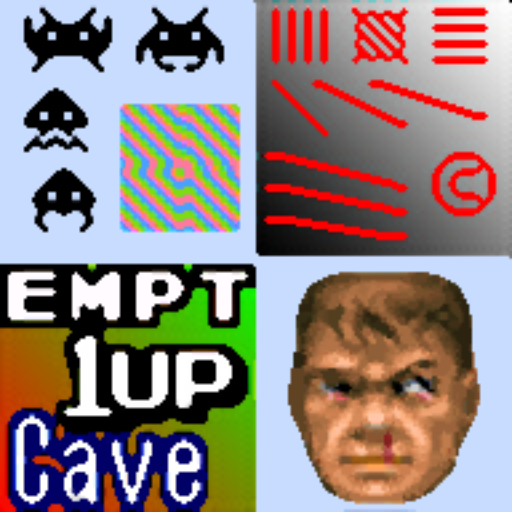Scalefx from Retroarch
- mcabel
- Topic Author
Less
More
Has anyone ported ScaleFx from retroarch, ideally 2x or any fast version? Or can someone please port it?
This is the source I believe:
common-shaders/scalefx at master · libretro/common-shaders · GitHub
This is the source I believe:
common-shaders/scalefx at master · libretro/common-shaders · GitHub
Please Log in or Create an account to join the conversation.
- mcabel
- Topic Author
Less
More
3 years 1 month ago - 3 years 1 month ago #2
by mcabel
Replied by mcabel on topic Scalefx from Retroarch
I found this github as well
GitHub - amadvance/scale2x: A real-time graphics effect able to increase the size of small bitmaps guessing the missing pixels without blurring the images
and this source somewhere else:
GitHub - amadvance/scale2x: A real-time graphics effect able to increase the size of small bitmaps guessing the missing pixels without blurring the images
and this source somewhere else:
/*
Copyright (C) 2003 Ryan A. Nunn
This program is free software; you can redistribute it and/or
modify it under the terms of the GNU General Public License
as published by the Free Software Foundation; either version 2
of the License, or (at your option) any later version.
This program is distributed in the hope that it will be useful,
but WITHOUT ANY WARRANTY; without even the implied warranty of
MERCHANTABILITY or FITNESS FOR A PARTICULAR PURPOSE. See the
GNU General Public License for more details.
You should have received a copy of the GNU General Public License
along with this program; if not, write to the Free Software
Foundation, Inc., 59 Temple Place - Suite 330, Boston, MA 02111-1307, USA.
*/
//
// ** Scale2x **
//
// Homepage: http://scale2x.sourceforge.net/
//
// Adapted by Ryan A. Nunn into Pixel and Vertex Shaders to be used with the
// Scaling2D entry in the Beyond3D/ATI Shader Competition
//
// Using the following source pixel map
//
// A B C
// D E F
// G H I
//
// and the following dest pixel map (which is the pixel 'E' expanded)
//
// E0 E1
// E2 E3
//
// The Scale2x algorithm works as follows:
// E0 = D == B && B != F && D != H ? D : E;
// E1 = B == F && B != D && F != H ? F : E;
// E2 = D == H && D != B && H != F ? D : E;
// E3 = H == F && D != H && B != F ? F : E;
//
// That can be re-written as this:
// E0 = D == B && B != F && H != D ? D : E;
// E1 = F == B && B != D && H != F ? F : E;
// E2 = D == H && H != F && B != D ? D : E;
// E3 = F == H && H != D && B != F ? F : E;
//
// As can be seen, there are some fairly obvious patterns
// For the bottom row, pixels B and H are swapped vs the top row
// And for the right column, pixels D and F are swapped vs the left column
//
// That means, with dependant textures reads, this algorithm can be converted
// into a fairly compact pixel shader
//
#include "Scaling.inc"
// The name of this effect
string name : NAME = "Scale2x";
//
// Techniques
//
// combineTechnique: Final combine steps. Outputs to destination frame buffer
string combineTechique : COMBINETECHNIQUE = "Scale2x_New";
// preprocessTechnique: PreProcessing steps. Outputs to WorkingTexture
//string preprocessTechique : PREPROCESSTECHNIQUE = "";
//
// Textures and Samplers
//
//
// Texture Gen Shaders
//
//
// Vertex Shader Output
//
struct VS_OUTPUT_NEW
{
float4 Position : POSITION;
float2 CentreUV : TEXCOORD0;
float2 Selector : TEXCOORD1;
};
//
// Vertex Shader
//
VS_OUTPUT_NEW VS_New(
float3 Position : POSITION,
float2 TexCoord : TEXCOORD0)
{
VS_OUTPUT_NEW Out = (VS_OUTPUT_NEW)0;
Out.Position = mul(float4(Position, 1), WorldViewProjection); // Matrix multipliy
Out.CentreUV = TexCoord;
Out.Selector = TexCoord*SourceDims;
return Out;
}
//
// Pixel Shader
//
// Even faster version (Uses dependant texture reads to work)
float4 PS_New ( in VS_OUTPUT_NEW input ) : COLOR
{
// half2 selector = frac(input.Selector);
half4 selector = tex2D(ModuloSampler, input.Selector);
// Invert left and right if we are right
float2 offset_x = { TexelSize.x, 0 };
if (selector.x >= 0.5) offset_x = -offset_x;
// Invert above and below if we are bottom
float2 offset_y = { 0, TexelSize.y };
if (selector.y >= 0.5) offset_y = -offset_y;
half4 L = tex2D(SourceSampler, input.CentreUV-offset_x);
half4 R = tex2D(SourceSampler, input.CentreUV+offset_x);
half4 A = tex2D(SourceSampler, input.CentreUV-offset_y);
half4 B = tex2D(SourceSampler, input.CentreUV+offset_y);
bool al = all(A == L);
bool ar = all(A == R);
bool bl = all(B == L);
half4 ret = tex2D(SourceSampler, input.CentreUV);
if (al && !ar && !bl) ret = L;
return ret;
}
//
// Technique
//
technique Scale2x_New
{
pass P0
{
// shaders
VertexShader = compile vs_1_1 VS_New();
PixelShader = compile ps_2_0 PS_New();
AlphaBlendEnable = FALSE;
ColorWriteEnable = RED|GREEN|BLUE|ALPHA;
SRGBWRITEENABLE = FALSE;
}
}
Last edit: 3 years 1 month ago by mcabel. Reason: add code and link
Please Log in or Create an account to join the conversation.
- AKD
Less
More
Just started playing Sea of Stars and would love to use ScaleFX with it. Hope someone could port it....
Please Log in or Create an account to join the conversation.
- Xenorik
Less
More
For now the only solution in this:
steamcommunity.com/app/1244090/discussio...3817418065209477556/
Please Log in or Create an account to join the conversation.
- antohachan
Less
More
2 years 2 months ago - 2 years 2 months ago #5
by antohachan
Replied by antohachan on topic Scalefx from Retroarch
Last edit: 2 years 2 months ago by antohachan.
Please Log in or Create an account to join the conversation.
